The truth, of course, is much more convoluted.
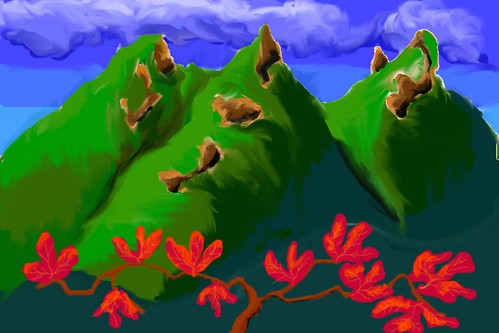
Long ago, humans lived within nature in a very tangible way. Any separation between us and the rest of the natural world was blurred.
This time has been viewed both as a brutish hell and an idyllic Eden. Depending on the circumstances, it could probably be either, or both. It was the natural habitat of our species. Our brains, our senses, our use of tools and fire, all developed for use by social hunter-gatherers driven by a mix of instinct and reason.

OK... it probably wasn't exactly like that old doodle of mine... but in any event it was was our first stage in our relationship with nature - the pre - 'conquering' stage.
I can't imagine there was fear of nature. There was fear of THINGS in nature - a volcano, perhaps, or a tornado, or a wildfire... but even that fear was tempered with curiosity, because as a species we thrive on disturbance. Many cultures both idyllize and mock the 'trickster' figure - often a coyote or raven or fox here in North America - perhaps in part because we share so many characteristics with these creatures. The trickster is as much a metaphor for the human species, I think, as anything.
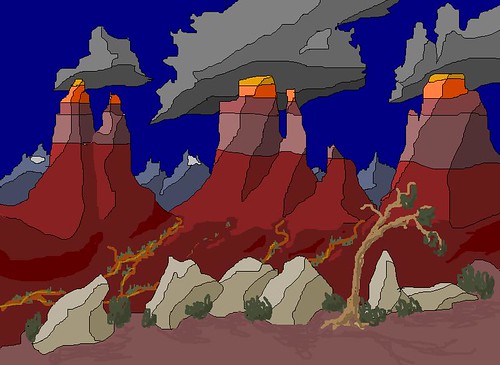
Somewhere along the way we learned that we could create disturbance. We didn't need to wait for lightning to start a fire. Some groups of people used fire, coppiced plants, and subtle selection of edible and useful plants in an interesting form of 'ecoculture'. This type of working landscape created a unique environment, a form of polyculture that today we struggle to emulate or even understand. It's difficult to say how this sort of approach would have 'worked' if it had spread over the whole world, but what is certain is that people aren't using such systems on a large scale today.
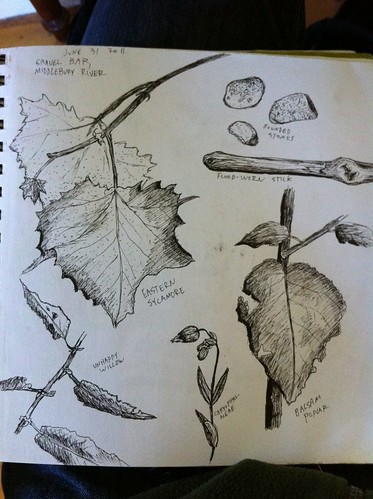
On a different continent, one where the landscapes and species composition was very different, people began trying to exert a more heavy-handed form of 'control' over the landscape. People realized that they could choose edible plants that, like humans, thrived on disturbance. They could massively disturb the soil with plows, and (try to) remove all but one type of plant.
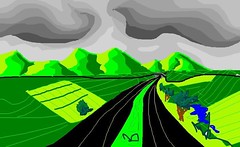
The payoff was potentially huge, but the risk of depending on only one species was correspondingly enormous. We placed a bet with Raven. When Raven came to collect his winnings, when other disturbances beyond our control destroyed our fields and led to famine... we tried to lock our doors. We cowered indoors as the floods raged and the locusts devoured our food - bringing us to the 'fear' stage.
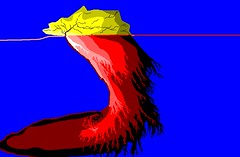
As we survived the ravages of trying to maintain a simple forced ecosystem, we began to turn our sights to the more complex, unpredictable world around us... and some set out to turn the rest of the world into our disturbance-driven ecology. This began the 'conquering' stage.
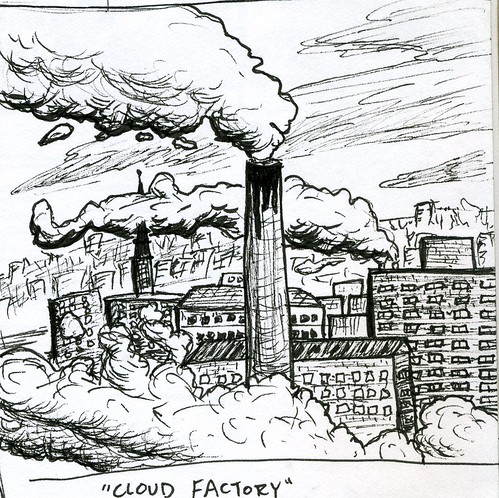
All along we had forgotten a very important fact, and it gnawed at us as we dug deeper into the hills to keep our roads from falling into the rivers. at some point it became obvious that we were pouring exponentially increasing effort into our keeping our artificial system running, with decreasing benefit. The calls of ravens and crows continued to echo amongst the deforested trees. Raven followed along our new highways and feasted on the roadkill, and the yips of coyotes began filling the forests soon after we silenced the somewhat less adaptable wolves. We lit up the world by burning the remains of long-dead ecosystems, to continue our ancient mission to push the dark away - and now after our other senses and instincts had been dulled the dark was more terrifying than ever.
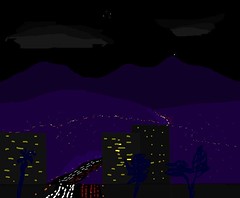
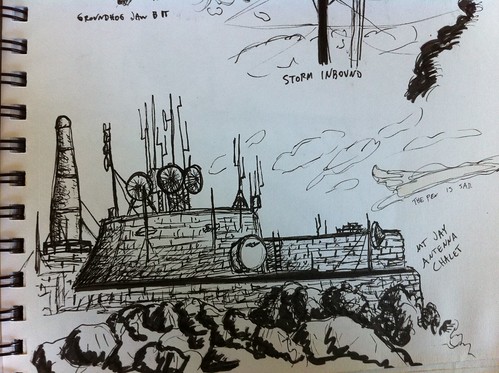
Still we moved forward, because what other choice do we have? As species began to disappear, whole ecosystems began to die, we realized there was a problem. Of course, our first response was that we had to use our 'great power' with which we 'conquered' nature to 'save' it. We would remove the garbage and toxins we put in rivers, figure out which species were dying, and save them in zoos and small preserves. We would use brute force and buried energy to keep 'nature' intact.
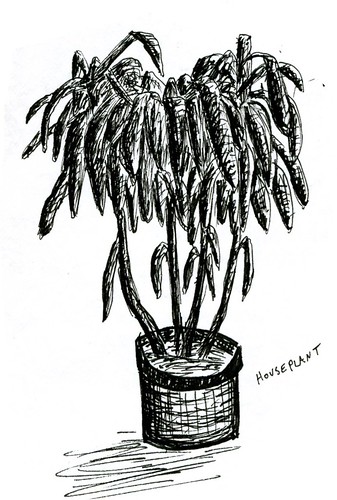
Raven cocked her head sideways, in amused curiosity.

For Raven knew the truth - that it is a delusion to fear, conquer, or save nature, because we ARE within nature. What we have become is nature trying to save nature from the destruction nature caused to nature because nature was afraid of nature...
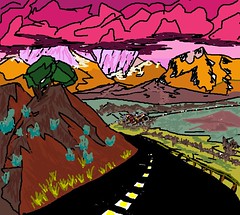
This thread of fate is so convoluted it could have only been created by a trickster. Just like Coyote and Raven in the old stories, we tied our path in a knot and haplessly struggled to break free from our own brambles... because of course this time we are the hapless trickster who got caught up in our own trick. Raven and Coyote are laughing at us this time.. .along with their compatriots Fox, Cockroach, Rat, Rabbit, Box Elder, Blackfly.. and let's not forget one of the most important - Water.

Where does this leave us? It seems the only way to be freed of the tangled knot is to recognize the truth. We ARE nature, nature is us, any disturbance we cause to the world for our convenience will have consequences later, and most importantly, CONTROL IS A MYTH. We don't control nature, we aren't even capable of fully controlling our own minds within nature, and everything we seek to force our will upon, from rivers to ecosystems to the internal ecosystems of our bodies, to other groups of humans, to the weather, the economy, the habits of animals, the very shape of the planet... will ultimately resist control borne of brute force.
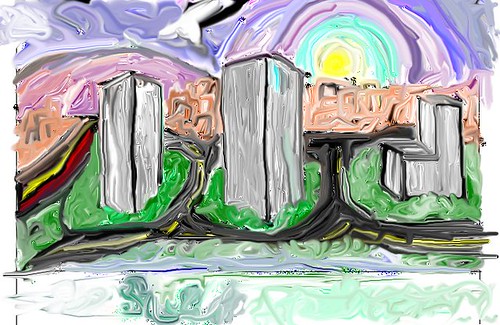
As a trickster species we can not control with force. Instead, from within the system, we must use our wits, senses, and humor to prod our world to move in ways we can work within. We can't force a river to follow a set path for very long with all of the gravel mining and concrete in the world. But, as a species we have the unfulfilled potential to UNDERSTAND rivers and the connections between them and everything else. If and when we reach that point, we will be able to drop a pebble in the Middlebury River above Ripton that causes the mighty Saint Lawrence to shift away from valued land as it passes through Quebec City... as easily as a person can move their hand using only their brain.
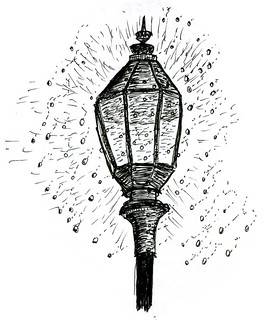
We have that potential as a trickster species WITHIN nature...
But are we there now?
not even close.
In fact, I would argue, some people were much closer in the distant past.

We can't get there by staying where we are. We need to go forwards and backwards at the same time.... something only a trickster is fully able to do.
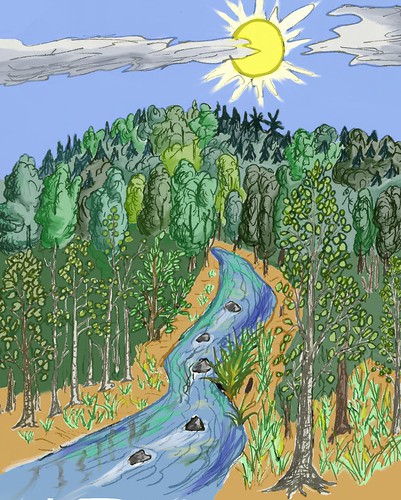

No comments:
Post a Comment